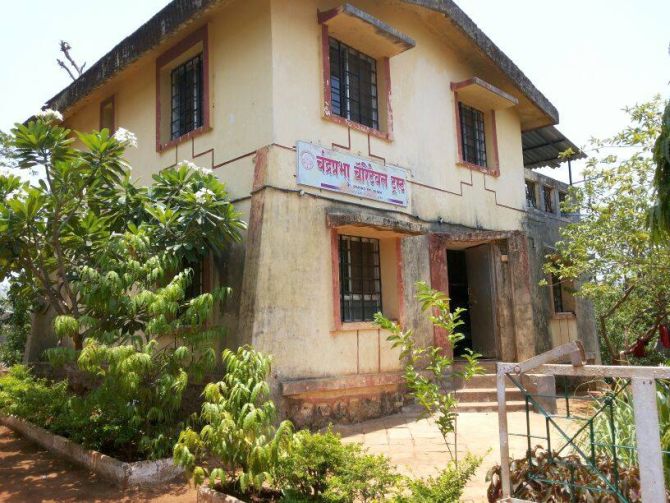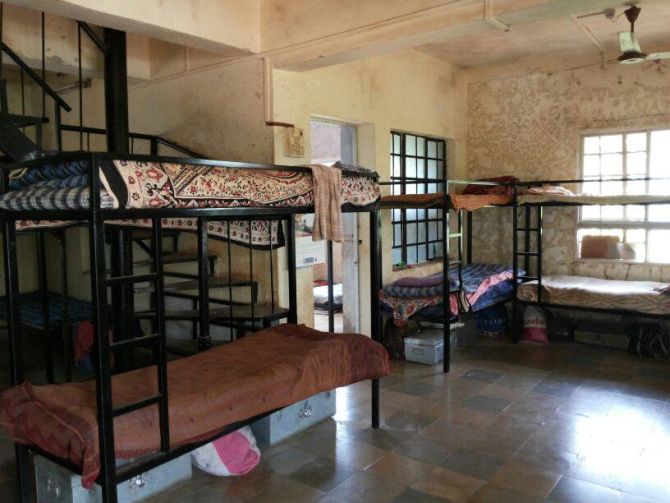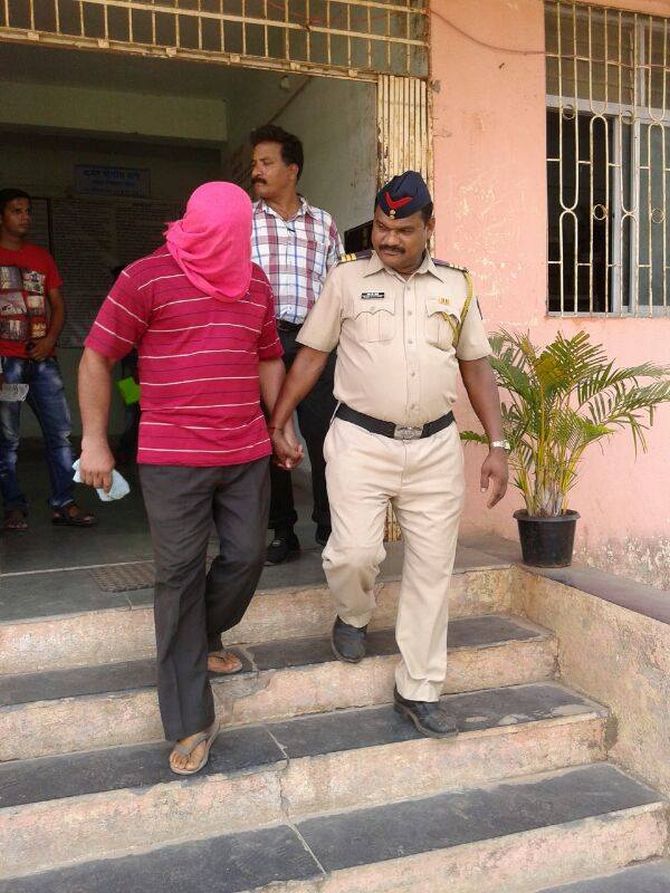 | « Back to article | Print this article |
Sexual abuse reported in Maharashtra's children's shelter
Sexual abuse is not the first instance of misconduct that has emerged from the residential school run by the Chandraprabha Charitable Trust in Karjat, reports Devidas Deshpande.
Investigation into the case of sexual abuse of minors in a shelter home in Karjat taluka of Maharashtra's Raigad district has brought out more disturbing details.
In 2006, a boy from the shelter died after ‘strangling himself with a wire’. The boy was a relative of Lalita Tonde (shelter manager).
Her husband, Bhagwan, who worked at the residential school, died in 2009, again under suspicious circumstances.
Shiv Sena leader and member of legislative council Neelam Gorhe, who had taken up the matter then, said, “I had written to the police officers to investigate the case thoroughly. Tonde's husband was a warkari (a devotee of Lord Vitthal of Pandarpur) and never touched alcohol, but it was shown that he died due to liquor consumption. His family has time and again claimed it was murder. His death was buried in files because of 'relations' between Dabholkar and police officials.”
Ironically, the shelter where the alleged atrocities took place is run by the Chandraprabha Charitable Trust that has been receiving aid from the zilla parishad and the Sarva Shiksha Abhiyan.
Around 50 students from Pune district were brought to the shelter home, situated in a remote village, around 25 km from Katraj, for their education. It is alleged that over the past 12 years, these students have been subjected to abuse.
But this is not the only ashramshala (residential school) situated in the area. Bordering the tribal belt of Thane district, Karjat, there are a good number of residential schools where tribal children from surrounding areas stay and pursue their studies.
Stories of atrocities have gone unreported as these residential schools are located in a remote village and the perpetrators managed to keep the children away from the public eye. But at the same time they succeeded in soliciting financial aid from other cities.
Click on NEXT to read more...
Sexual abuse reported in Maharashtra's children's shelter
The matter came to light only when one of the students informed her parents of sexual abuse and harassment at the ashram. The girl’s parents approached their employer who in turn contacted Childline, an NGO in Pune.
Anuradha Sahasrabuddhe, director of Childline, Pune, contacted volunteers of her organisation in Raigad, who filed a complaint with the Karjat police.
Following the complaint, the police, last week, arrested Ajit Dabholkar, director, and manager Lalita Tonde of the Chandraprabha Charitable Trust. They were remanded to police custody till June 5.
The complaint led to cases being filed for sexual abuse of five girls and boys.
But Childline official in Raigad, Ashok Jangle, claimed that as many as 32 boys and girls were subjected to abuse. “They were subjected to inhuman acts that can't be spoken of in public. Many parents are unwilling to come forward and the police have been reluctant to file cases,” he said.
Senior police inspector at Karjat police station, R R Patil, confirmed that a case of abuse of five students was registered. But he said no other students had come forward with complaints.
Jangle has been critical of the way the police have handled the case. “The police have been reluctant to filecases. They also took the victims and accused from Pune to Alibaug for medical checkup in the same van, which is against the law. The police took four days to seal the residential school and two days to raid Dabholkar's house in Pune. This allowed the accused to destroy significant evidence,” said Jangle.
Click on NEXT to read more...
Sexual abuse reported in Maharashtra's children's shelter
Protests by volunteers and political organisations forced the Crime Branch to take over the case.
The building that houses the residential school has good facilities. “We carry out checks in such schools and orphanages from time to time. But the facilities are good and one does not know what goes on inside,” Sahasrabuddhe admitted.
CCT's residential school is among several schools in the area. There are five schools run by government agencies for tribal development.
“We carried out a survey of such schools and found four private schools. All of them are registered institutions,” Patil said. He agreed that such investigations are done only on receiving complaints.
But Patil's statement is in stark contrast with what Varsha Gaikwad, state minister for women and child welfare, has to say. Gaikwad said the school was unauthorised. When asked how many unauthorised residential schools were operating in the state, she said, “My department does not have this data. But I have directed all district officials to check all such institutions and even ones running in private homes.”
Even Jangle contradicted Patil's claim. He listed seven such residential schools operating in Raigad district. They are situated in Kalokhe village (Panvel), Vagani, Sector 6, Pen Savarsai, Karjat Neral, Khalapur Rees and Khalapur railway station.
This is the second major scandal in the last three years in Raigad involving sexual abuse of children. A sessions court in Mumbai had convicted six people for raping and torturing disabled inmates of Panvel's Kalyani Mahila and Bal Seva Sanstha, a private shelter for orphans, disabled and the destitute. The shelter founder Ramchandra Karanjule was sentenced to death last year.


